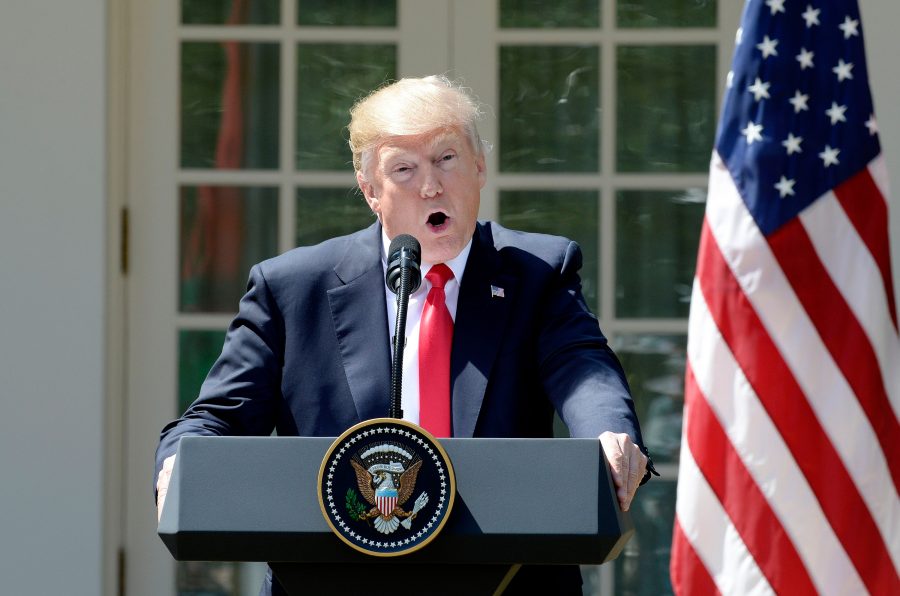Sexual Assault Awareness Month is more than just ‘for show’
U.S. President Donald Trump speaks during a joint press conference with King Abdullah II of Jordan on Wednesday, April 5, 2017 in the Rose Garden of the White House in Washington, D.C.
Apr 5, 2017

T
he month of April addresses a sobering issue occurring too frequently: sexual assault.
President Barack Obama was the first to declare April as National Sexual Assault Awareness and Prevention Month. President Donald Trump repeated the declaration Friday.
Obama’s 2016 proclamation detailed a need to transform a victim-blaming culture through the administration’s support of the “It’s On Us” campaign, the Violence Against Women Act and grants for the National Sexual Assault Kit Initiative.
Get The Daily Illini in your inbox!
By contrast, Trump’s proclamation, while focusing on the same need to change cultural norms in regards to sexual assault, vaguely details his plan to create “a task force on crime reduction and public safety” and to “(support) victims, (prevent) future abuse, and (prosecute) offenders.”
While these differences of specificity and direct initiative can be partly chalked up to differences of time spent in office, it cannot be ignored that Trump faced harsh criticisms due to his sexist comments about women on the infamous “Access Hollywood” recording. The president’s involvement in this controversy put sexual assault on a national platform, reminding both Trump and the nation of the seriousness and sensitivity regarding the issue.
Furthermore, recent news regarding sexual assault charges against prominent figures such as Fox News co-president Bill Shine, former chairman Roger Ailes and prime time host Bill O’Reilly have created an ironic tone as we step into Sexual Assault Awareness Month.
Sexual assault is an even more prevalent issue in regards to university students. According to a study by the Rape, Abuse & Incest National Network, 11.2 percent of all students experience “rape or sexual assault through physical force, violence, or incapacitation.”
For the University specifically, many students feel as though the Counseling Center provides insufficient treatment. Many students find themselves unable to even make an appointment to speak with a counselor.
According to a reviewer on the Counseling Center’s Google Reviews page, the counselor gave “false information,” and another reviewer felt as if the staff was “poorly trained.”
One friend of mine who had recently experienced a sexual assault situation tried to obtain services at the Counseling Center, but found that after numerous calls they were fully booked and unable to accommodate her.
While there are other resources such as the University’s “We Care” page and sexual assault hotlines, an in-person appointment with a trained, effective counselor is irreplaceable.
The intentions behind Sexual Assault Awareness Month are valid and necessary to educate the public about the consequences and struggles of experiencing sexual assault. But the reality of the current situation for victims is tragic.
We live in a society in which the president bragged freely about grabbing a woman’s genitals, in which public figures indulge in their power and in which victims are unable to receive the help they need.
Trump may think that continuing the tradition of Sexual Assault Awareness Month is for show, but the American people deserve better than vagueness and buzzwords in dealing with an issue that endangers lives daily.
Minju is a sophomore in Media.






